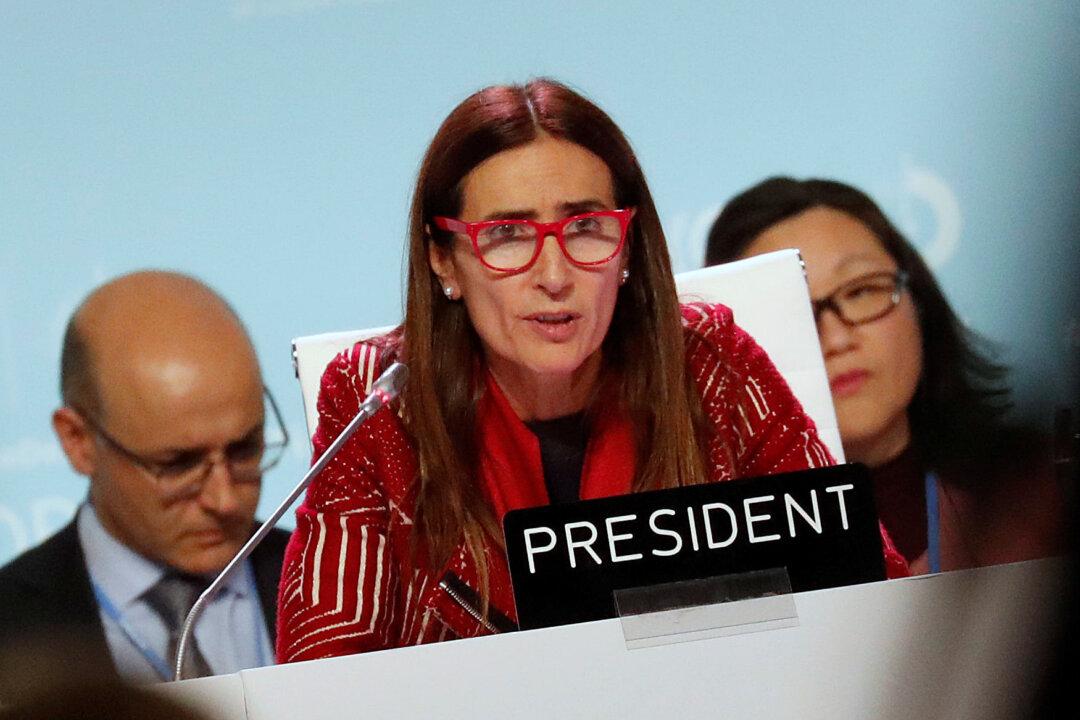A handful of major states resisted pressure on Dec. 15 to ramp up efforts to combat global warming as a U.N. climate summit came to a delayed close.
The summit talks in Madrid, dubbed COP25, were viewed as a test of governments’ collective will for more aggressive cuts to greenhouse gas emissions. But the conference, in its concluding draft, endorsed only a modest declaration on the “urgent need” to close the gap between existing emissions pledges and the temperature goals of the 2015 Paris climate pact.





